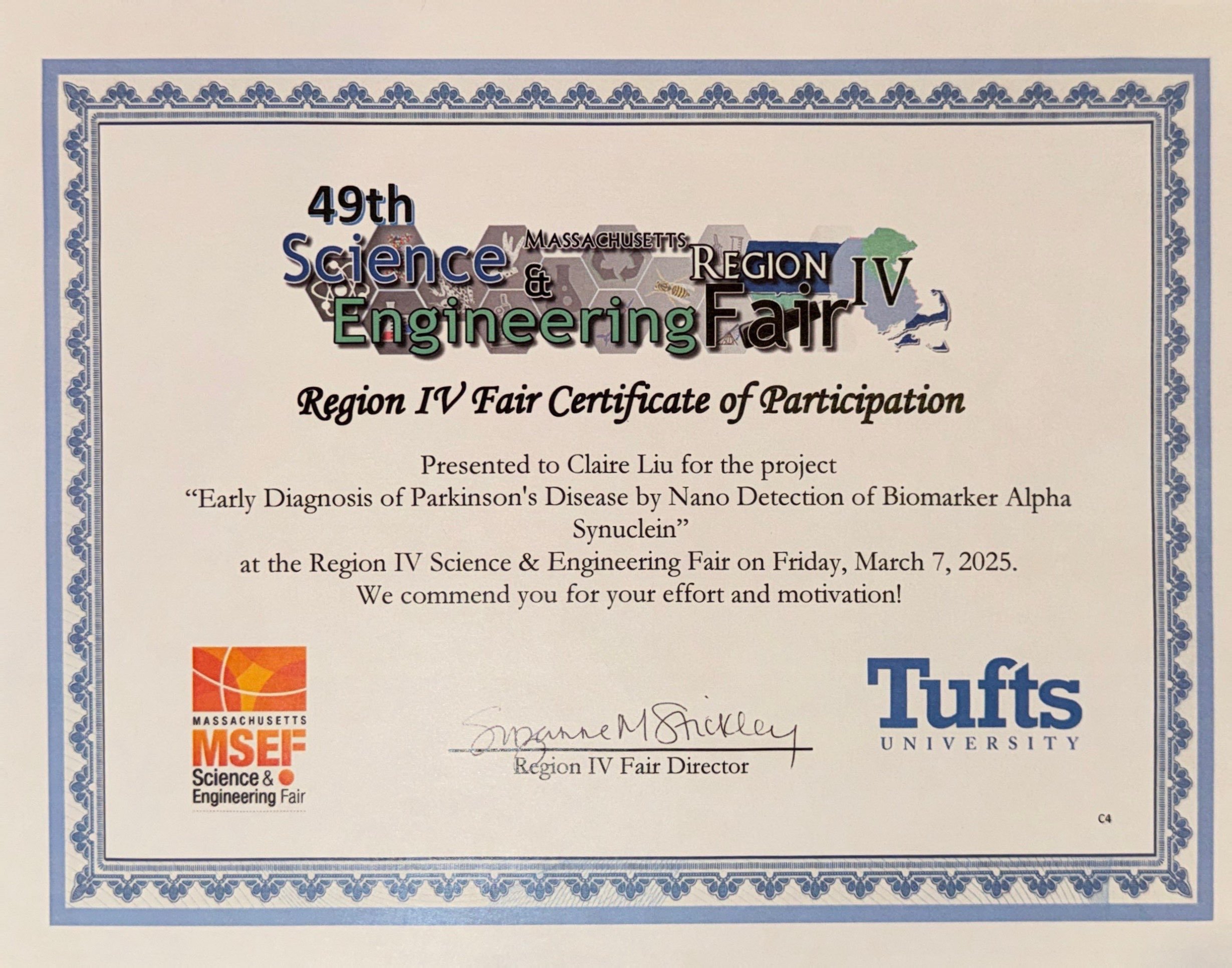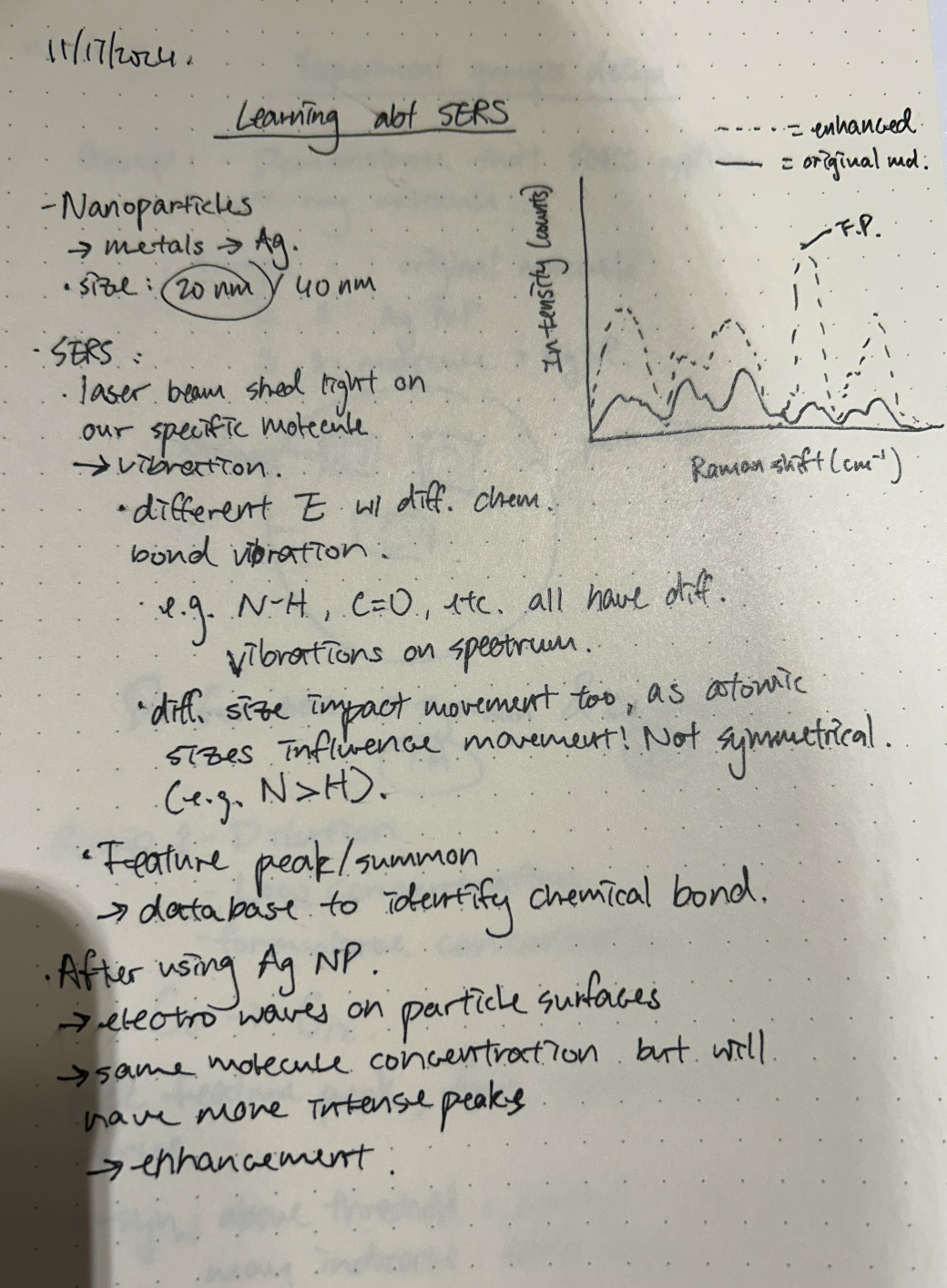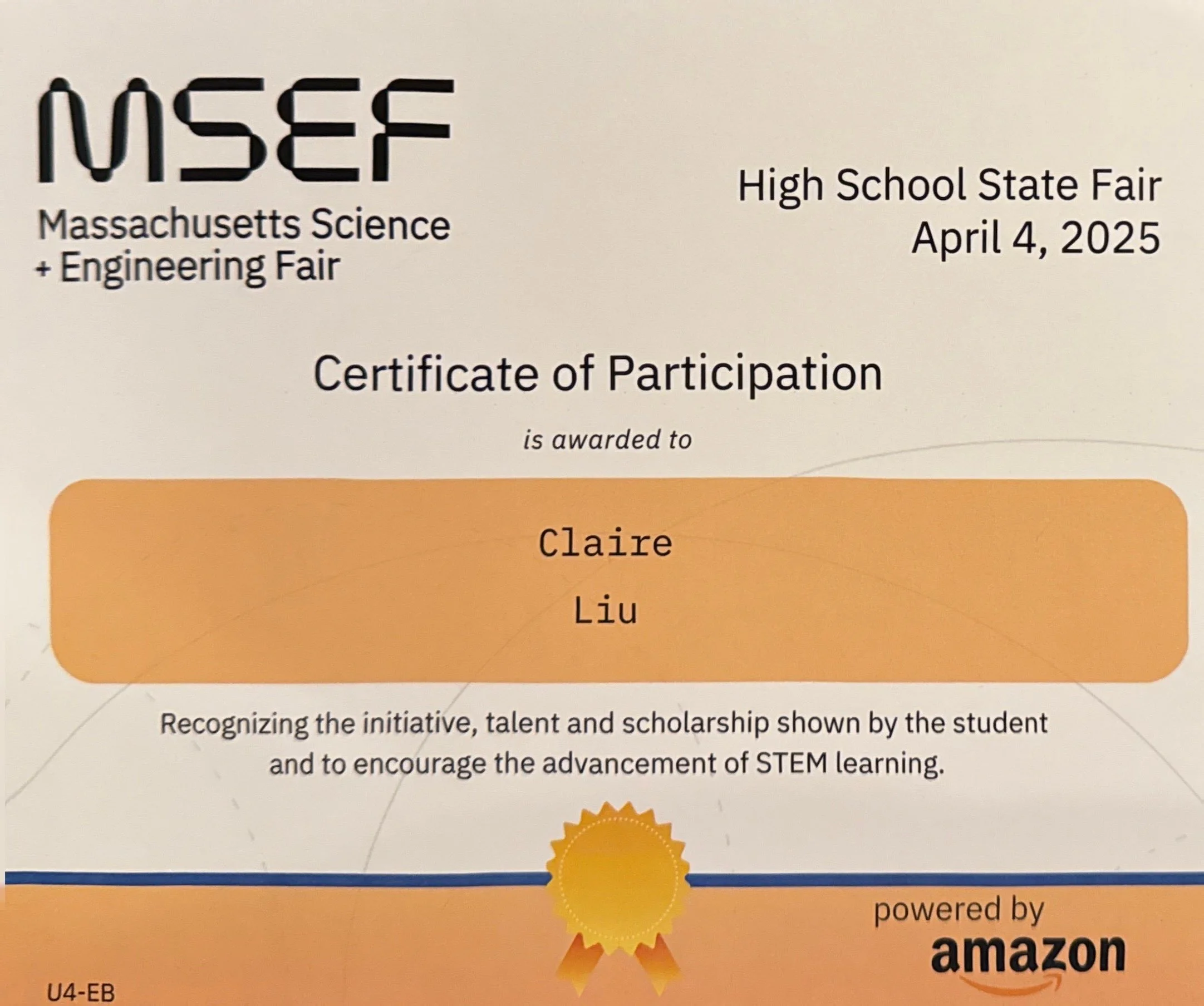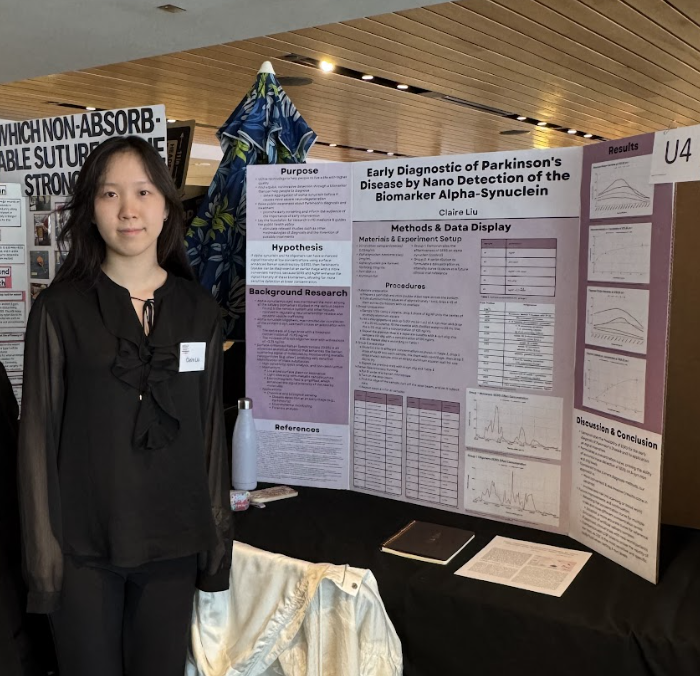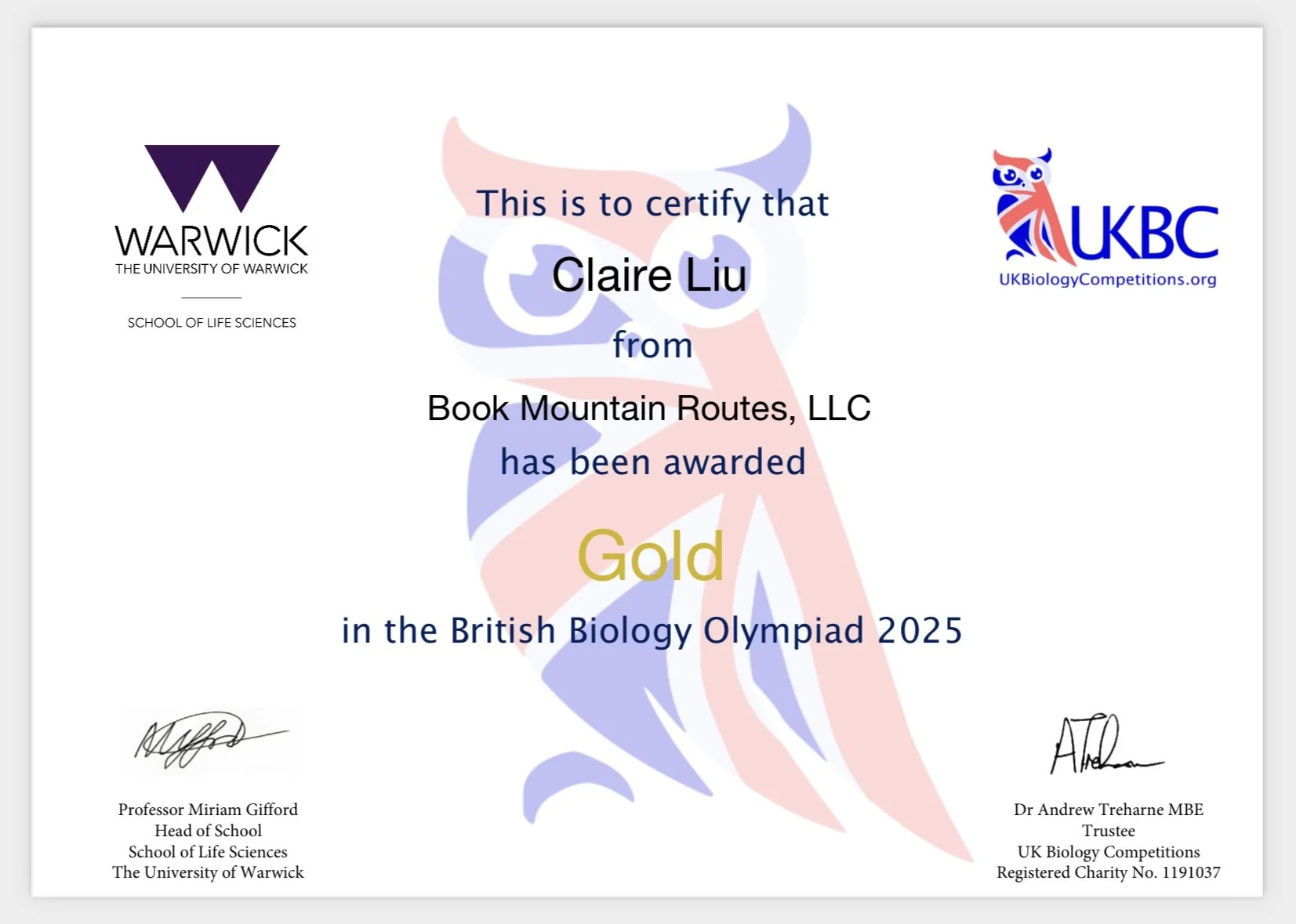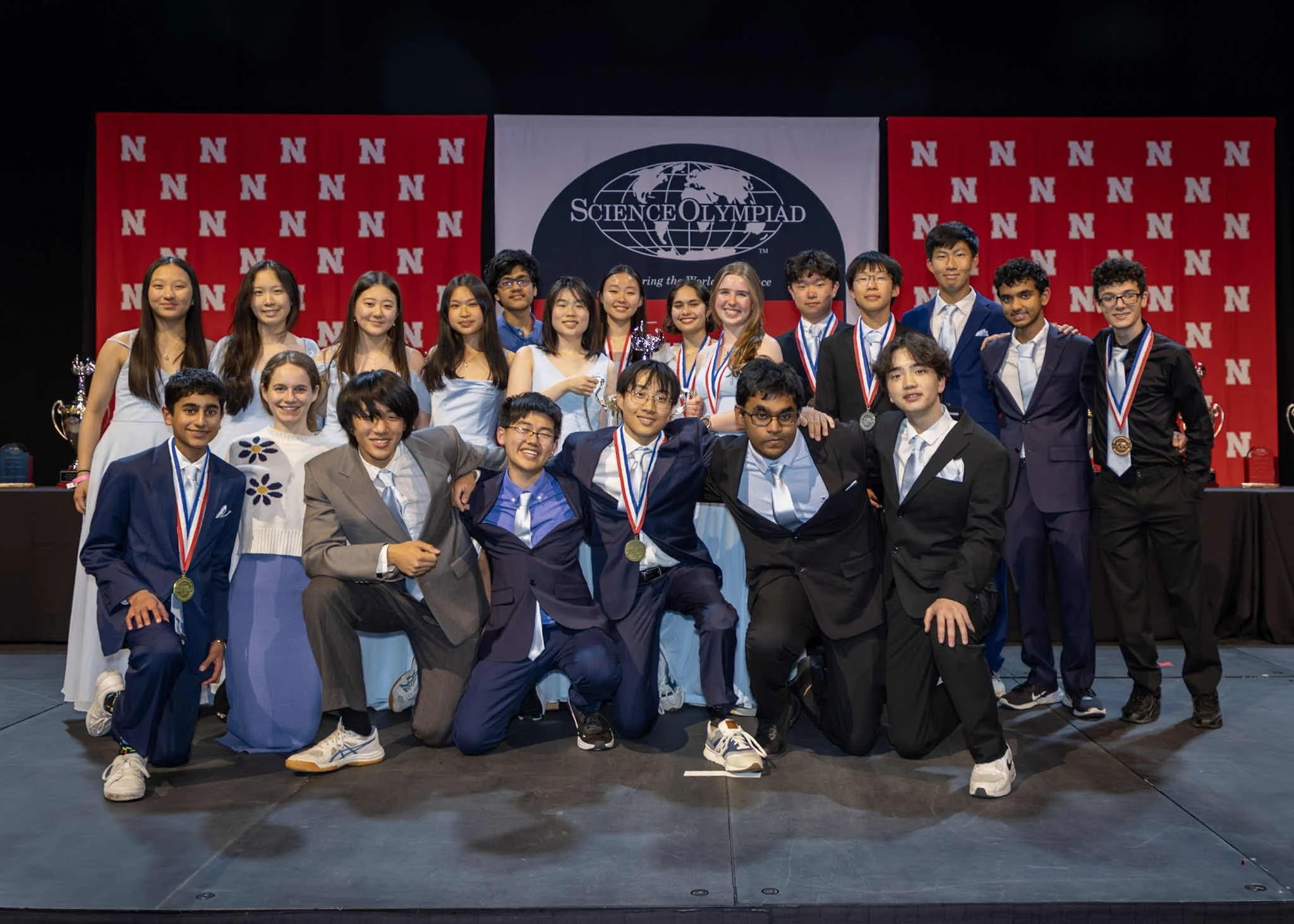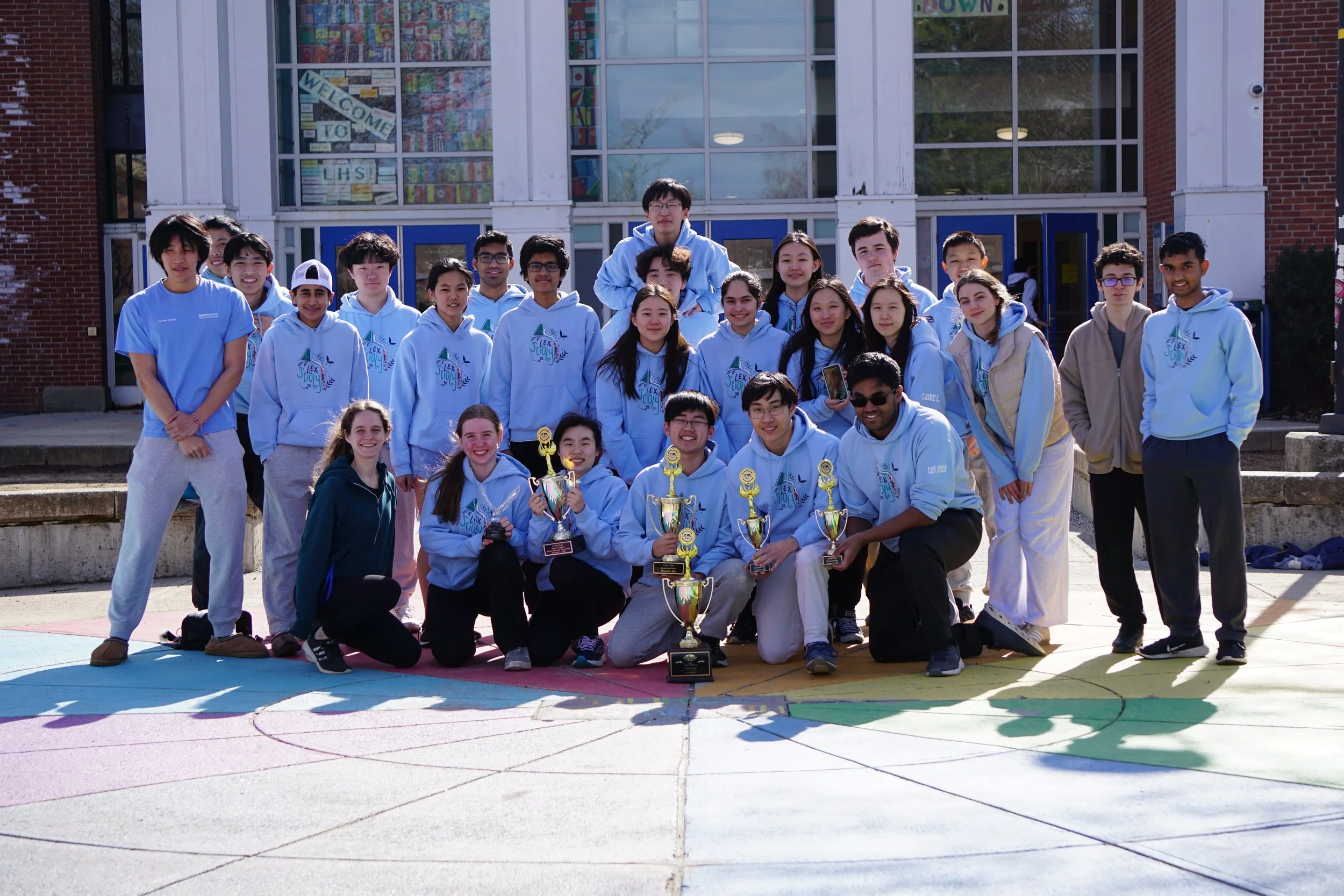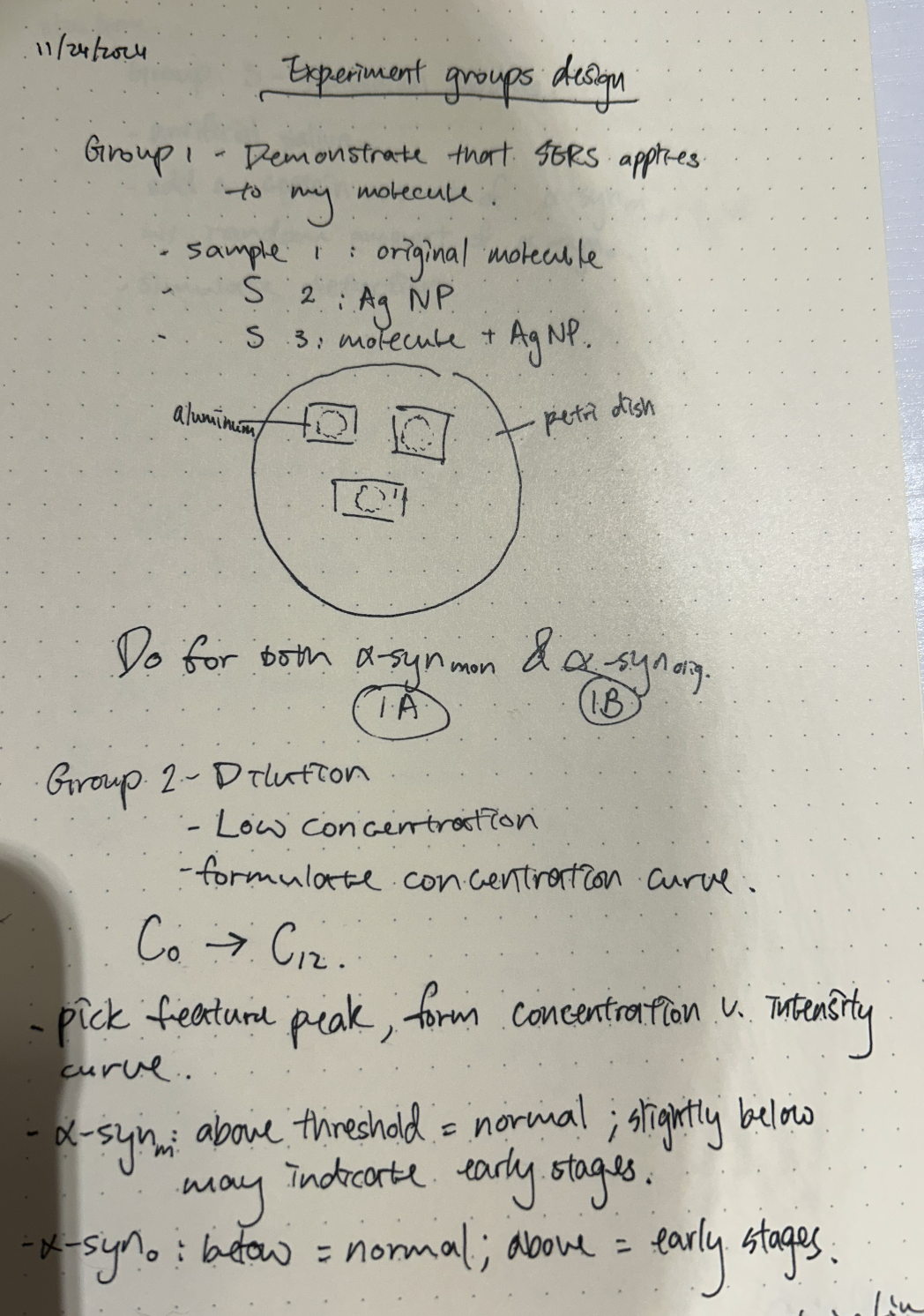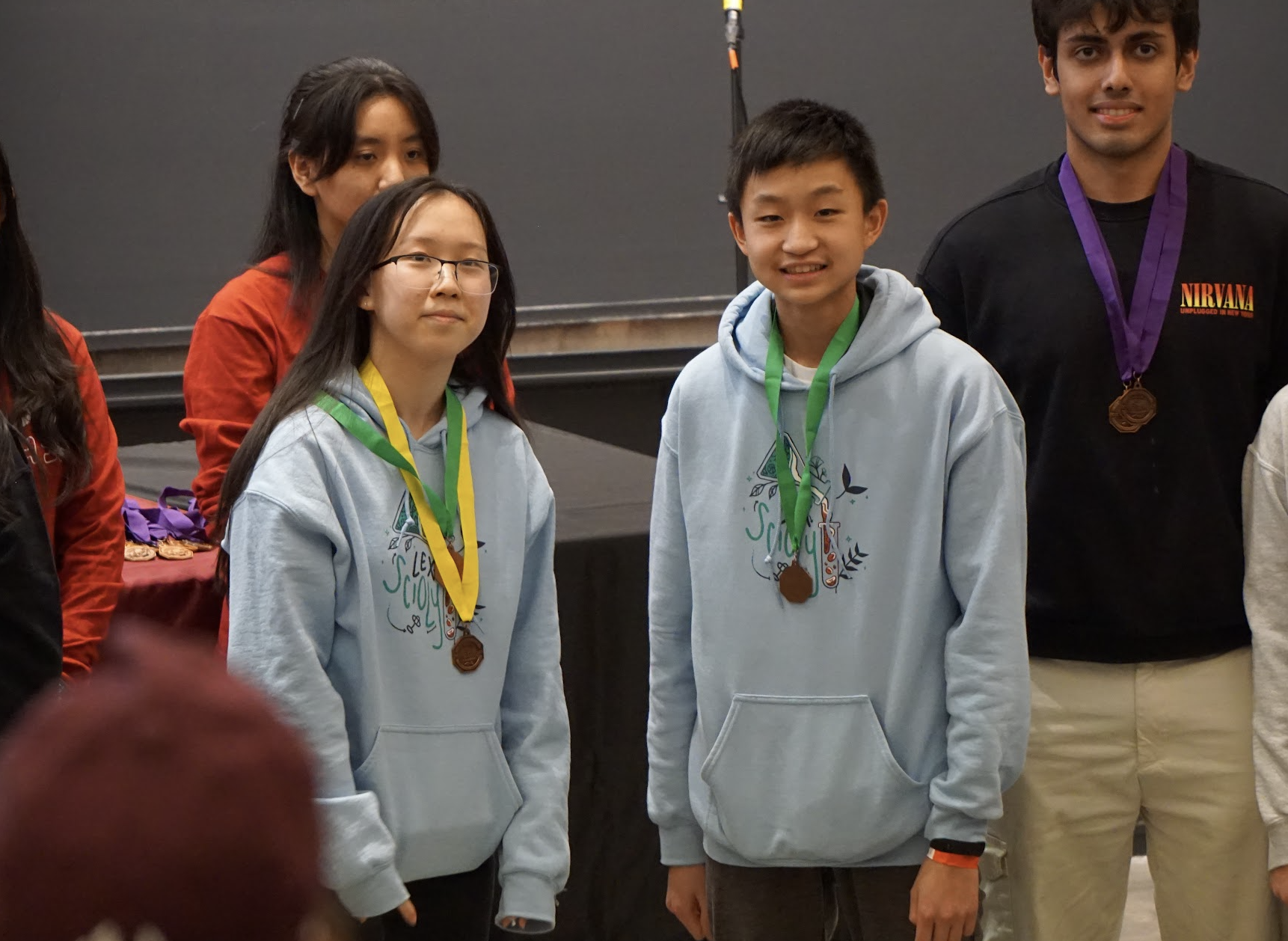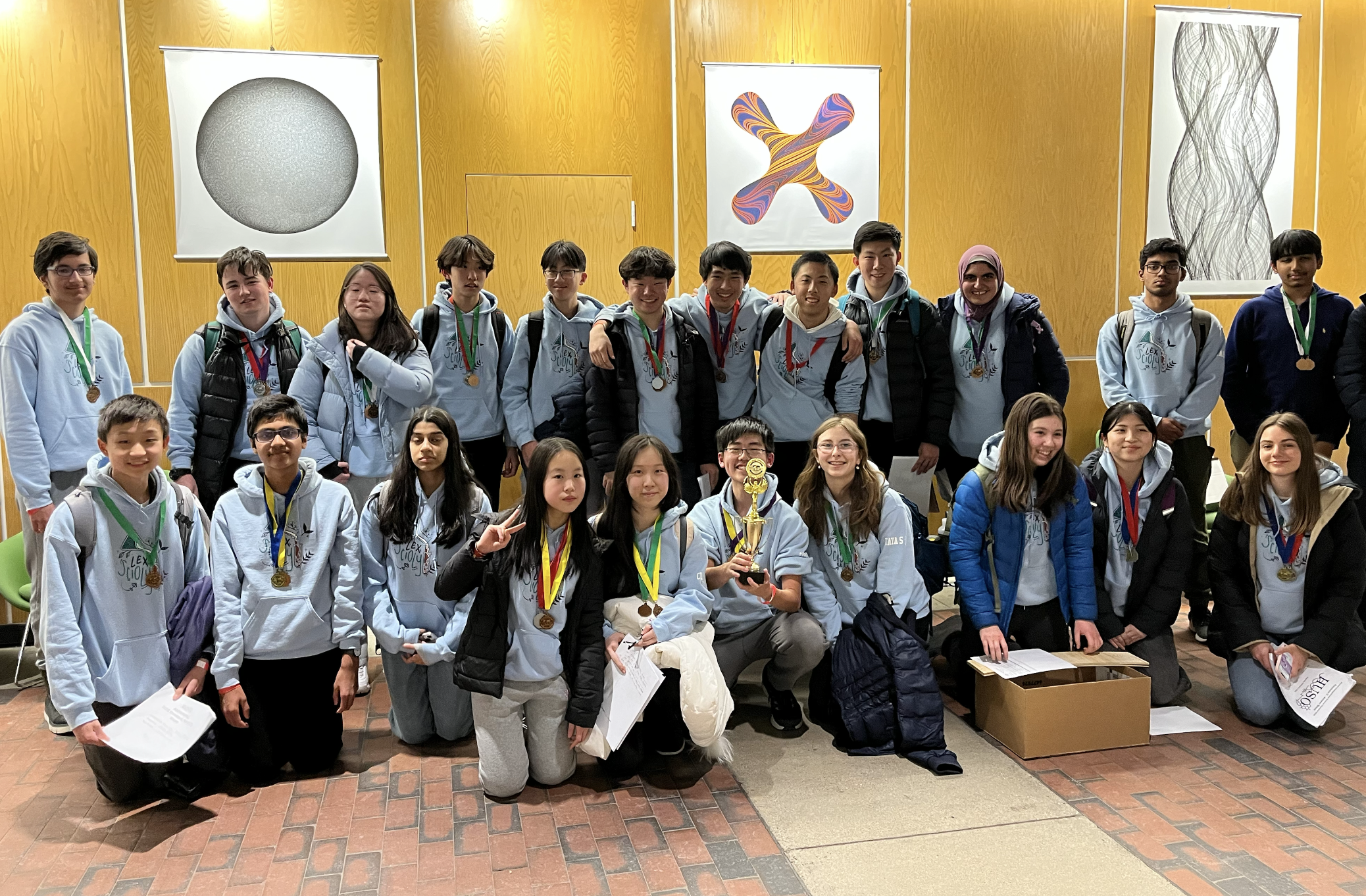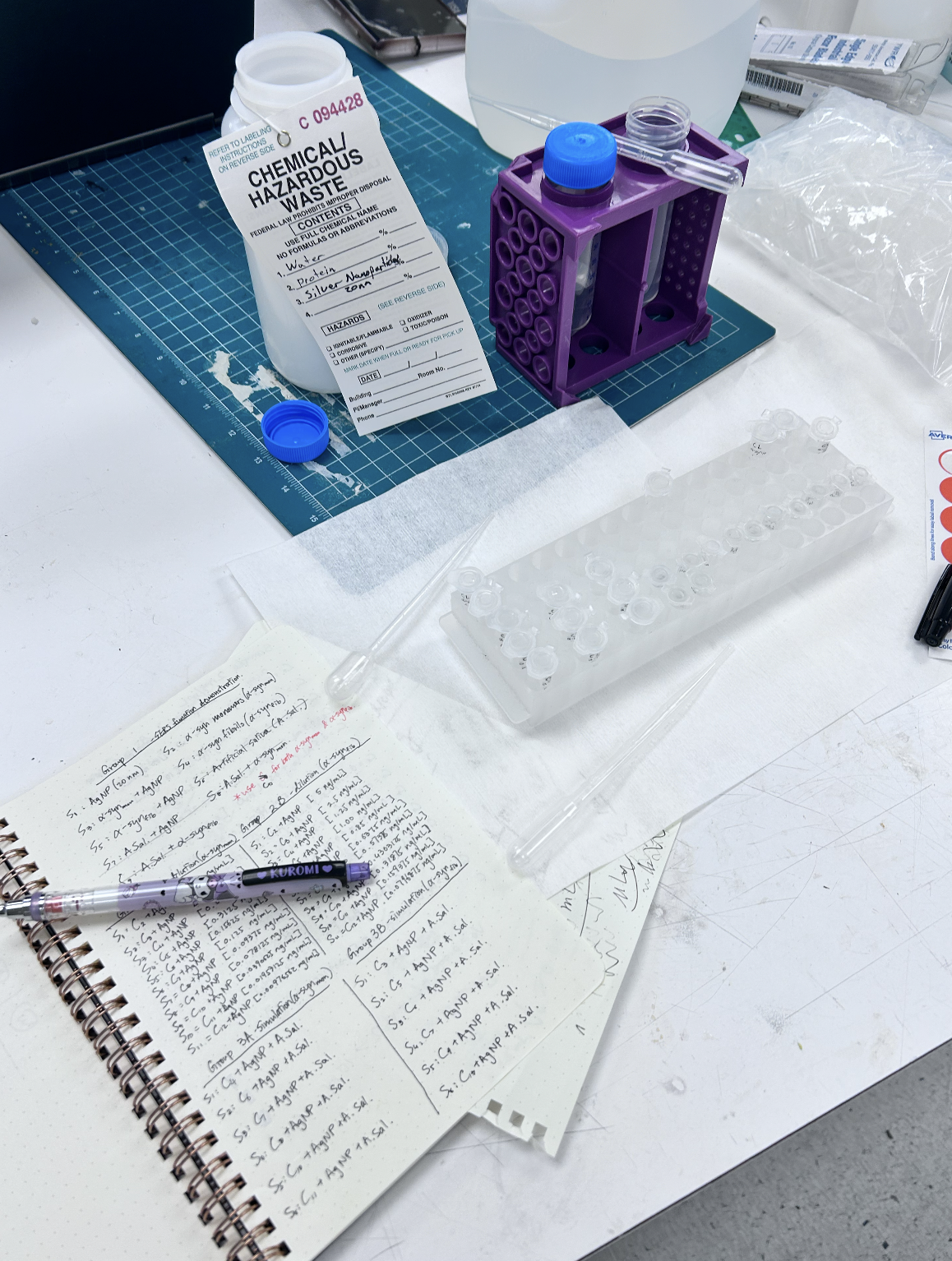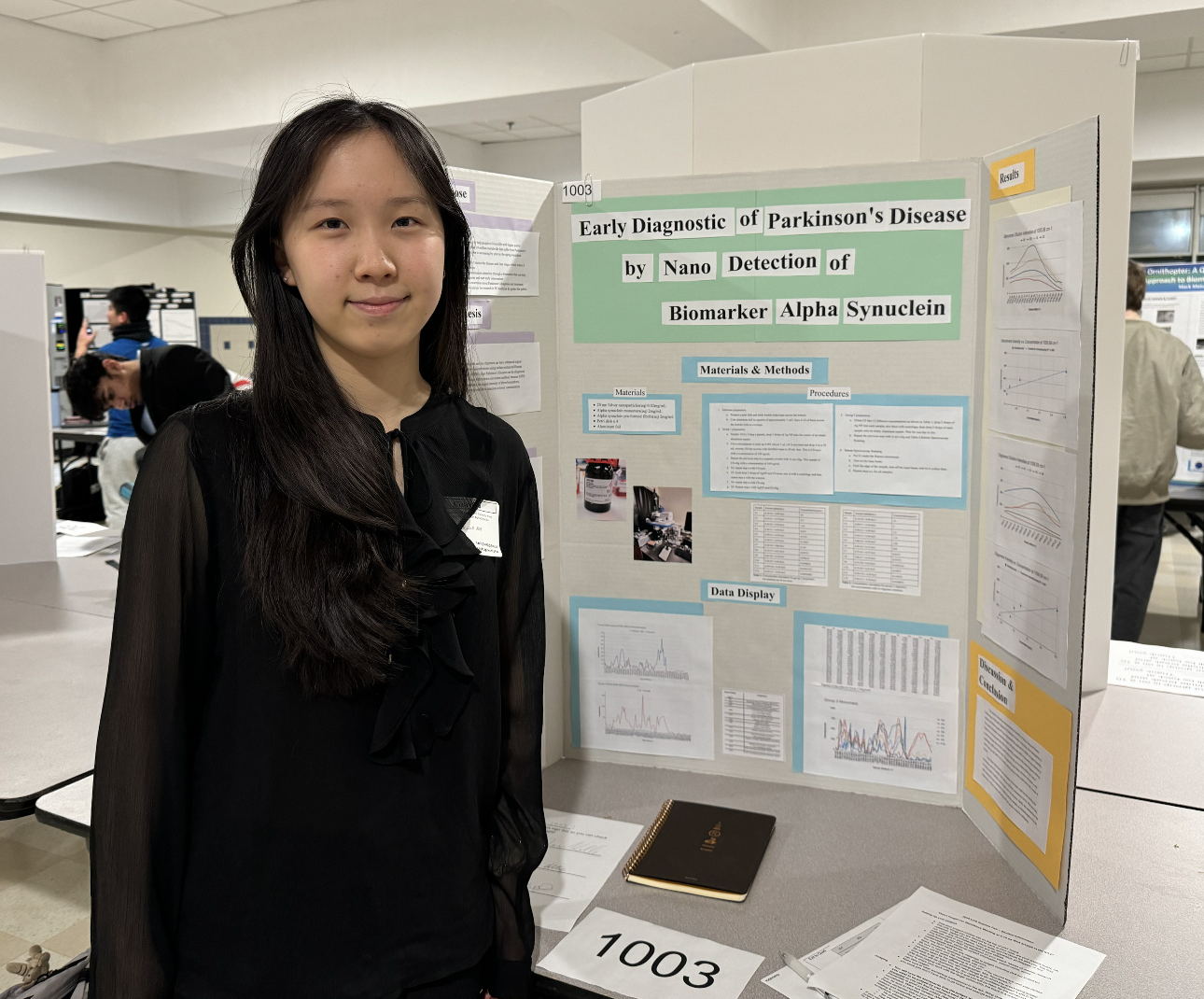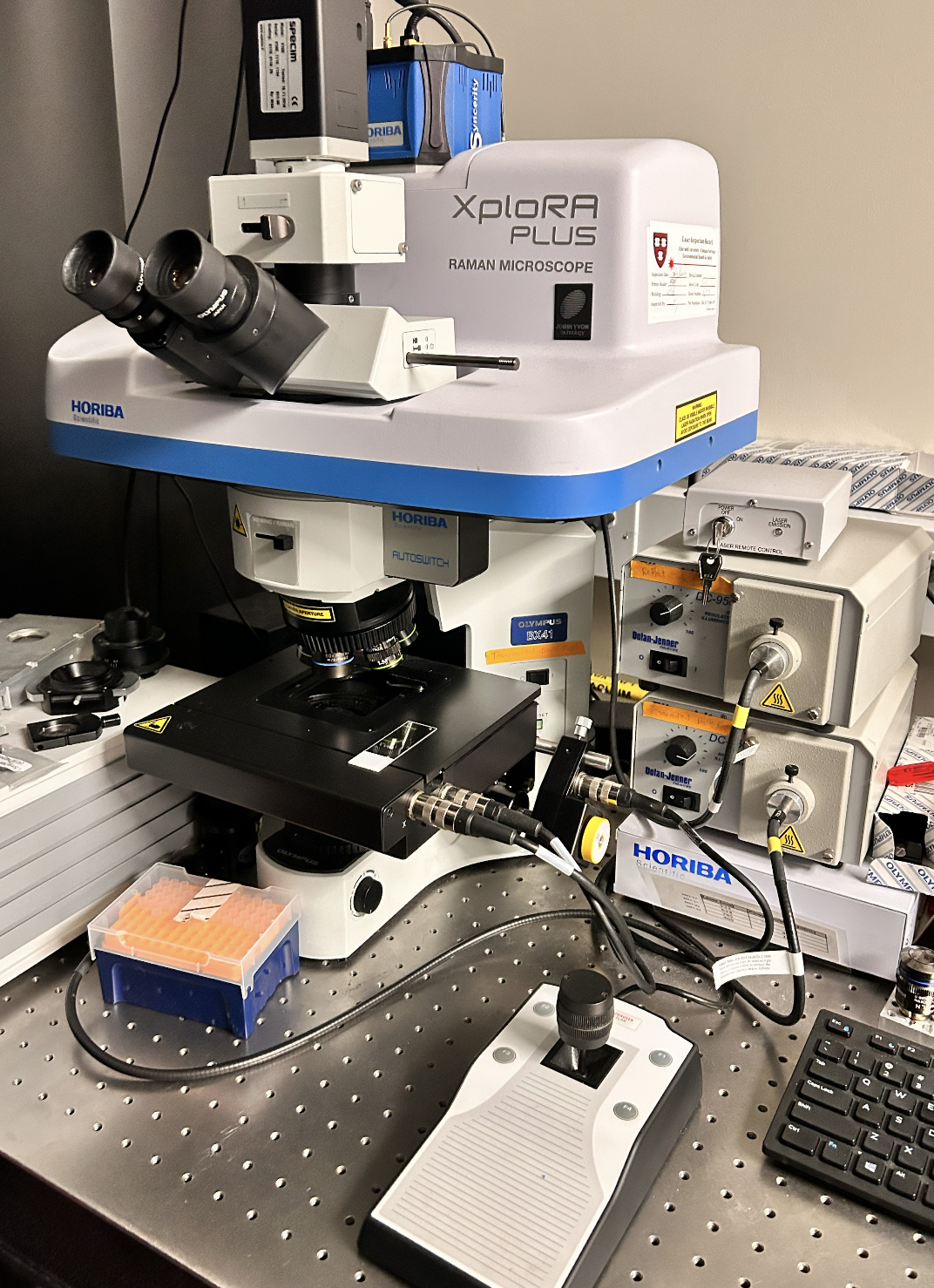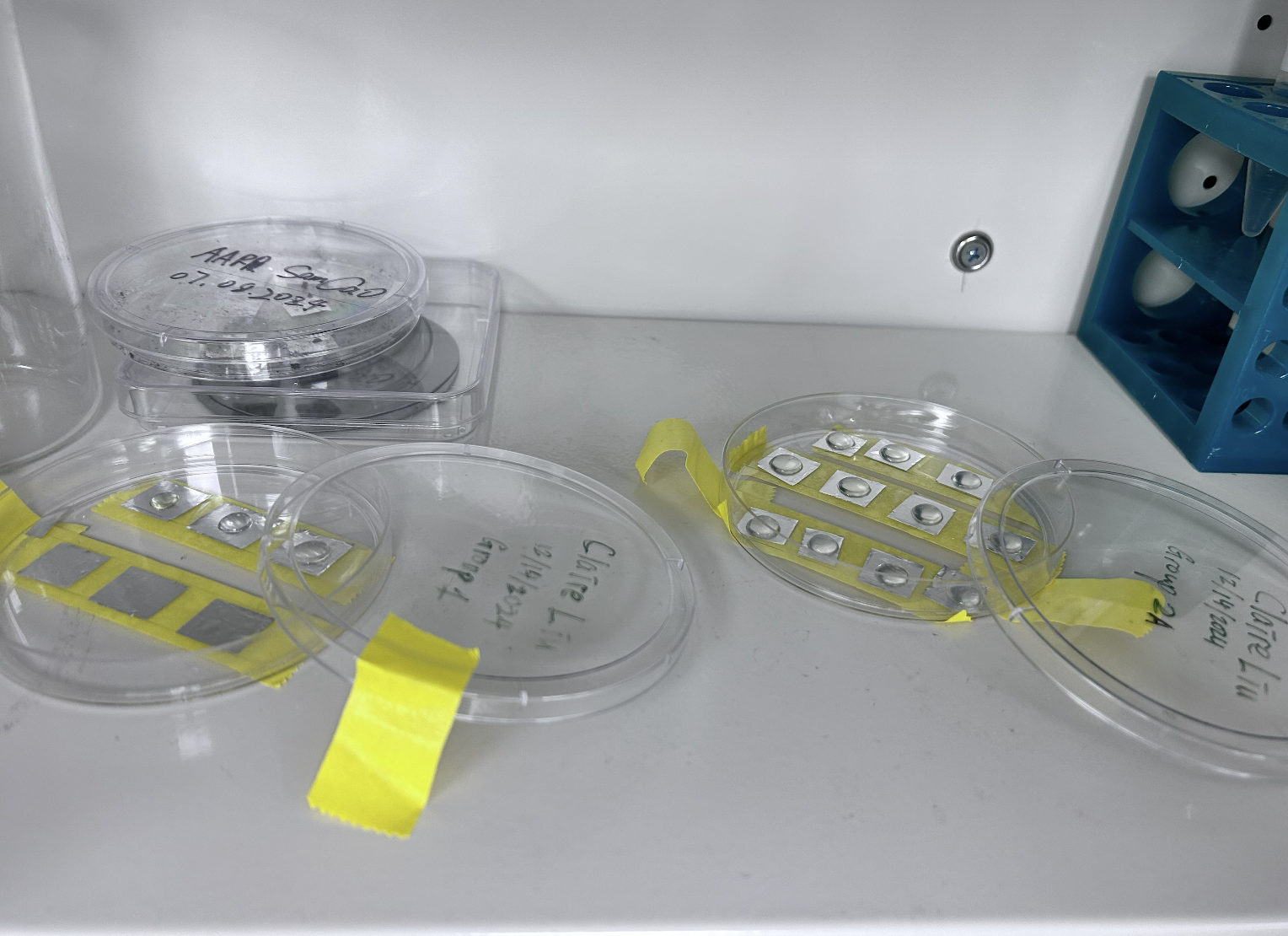ACADEMIC
I’m deeply interested in the intersection of neuroscience and engineering, about how technology can help us better understand and interact with the brain. I’m fascinated by various aspects of this area, from neural signals and wearable devices to brain-computer interfaces that translate science into real-world impact. Through research and creative exploration, I hope to design tools that bridge biology and technology, helping decode how the mind works and improve lives through innovation.
RESEARCH
My research explores how nanotechnology and biomedical engineering can be used to detect early biomarkers of neurological diseases like Parkinson’s. Over several months, I designed experiments, analyzed data, and refined detection methods under mentor guidance. This experience deepened my understanding of scientific inquiry, from tackling noisy data to communicating findings clearly. Presenting my work at school, regional, and state science fairs, and later publishing it at the IEEE Nano 2025 Conference, taught me the value of persistence, curiosity, and sharing ideas that could one day contribute to real-world medical innovation.
Harvard Center of Nanoscale Systems
COMPETITION
For both USABO and BBO, I spent months studying advanced biology beyond the school curriculum, reviewing textbooks, and practicing past exams.
In USABO, I scored high (top 9%) in the Open exam among 5,000+ participants worldwide and advanced as a semifinalist.
In BBO, I ranked within the top 10% worldwide and earned the Gold Award.
SCIENCE
OLYMPIAD
Laboratory environment, experiment materials, and the software for data processing and analysis
Finalized Paper:
Early Diagnostic of Parkinson's Disease by Nano Detection of the Biomarker Alpha-Synuclein
Abstract - In recent years, Parkinson’s Disease (PD) has become a more global issue, impacting over 10 million people worldwide, and is expected to rise continually due to an increase in the aging population. As slowing down the disease progression is its only treatment, diagnosing the disease as early as possible is critical for an effective intervention. Thus, finding a biomarker that accurately and consistently reflects the early stages of PD is necessary. In recent studies, researchers have analyzed many biomarkers and identified several that allow for an accurate and early diagnosis of the disease. In particular, alpha-synuclein(α-syn) and its oligomers (α-syn olig) showed potential for a widespread screening and an early noninvasive diagnosis. This study aims to detect salivary α-syn and α-syn olig at low concentrations, utilizing surface-enhanced Raman scattering (SERS) spectroscopy. By enabling the analysis of biomarker concentration in different fluids combined with silver nanoparticles (Ag np), this method would develop a diagnostic procedure for the early stages of the disease. This study employed various experimental techniques to analyze the biomarker under different circumstances by demonstrating the functioning of silver nanoparticles on α-syn, finding a concentration-signal intensity curve, and simulating in artificial salivary samples. The outcomes of this study may enhance future research in Parkinson’s Disease and other biomarker-based diagnostics, improving the quality of life of many people.
Full Paper - https://ieeexplore.ieee.org/document/11113764
Certificate of participation in MA Region IV regional science fair
I spend 5 hours/week( ~20 weeks/year ) with my team to practice together, preparing for multiple subject-specific events; I researched topics, practiced problem-solving with partners, and helped organize study sessions; I competed with team in tournament and entered multiple sub-competition with partners, with each being a different topic of science; last year, I competed in disease detectives, codebusters, & WIDI. This year, I am planning to compete in designer genes, codebusters, and anatomy & physiology.
State Champion (National 11th/60 teams) & Corteva Enterprise Award, 2025 National Science Olympiad
Research diary
(Left) Notes on the mechanism of methodology (SERS)
(Right) Experiment group design
Certificate of participation in Massachusetts state science fair
Certificate of participation in Lexington High School Science Fair
The raman microscope used for data collection


